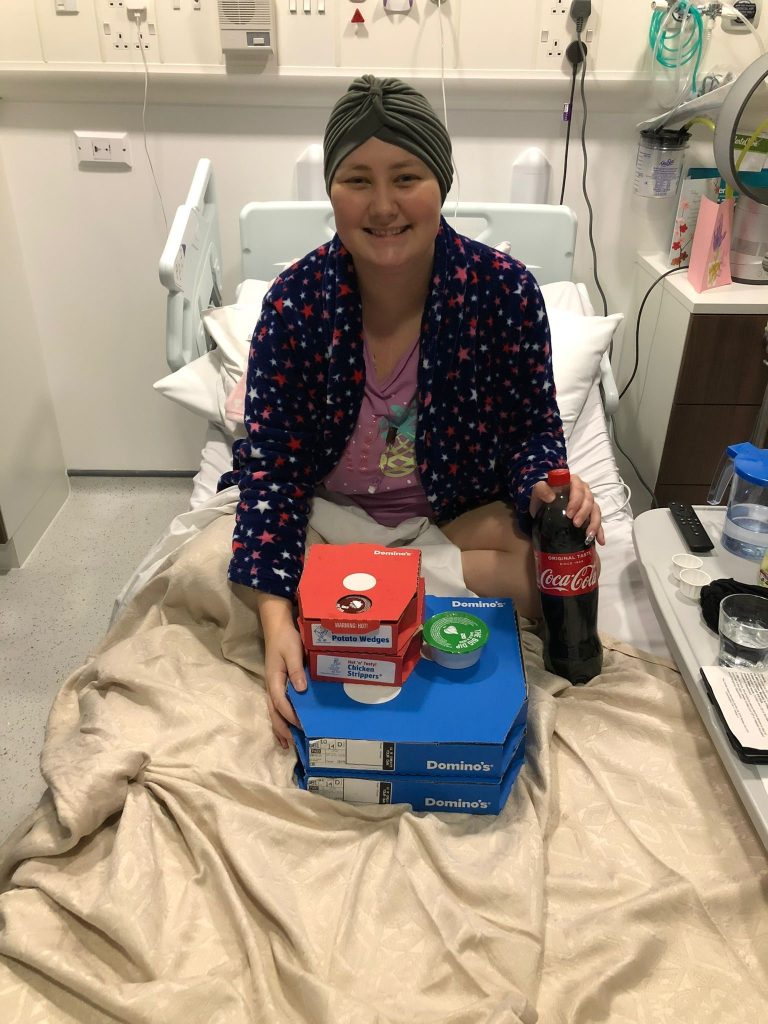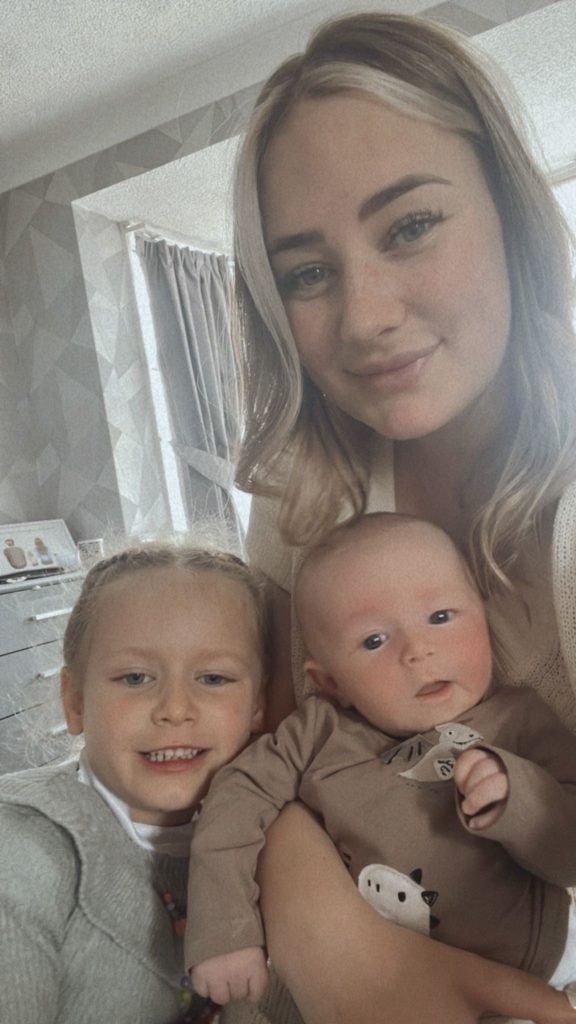A woman who feared she would be infertile following chemotherapy was able to conceive naturally and give birth – after receiving new cancer treatment in Manchester.
Sammy Gray, 26, is one of the first CAR-T therapy patients in the UK to give birth after the new treatment saved her life.
She described son Walter as “our little miracle” and said: “If it wasn’t for the CAR-T treatment at The Christie neither of us would be here now.”
The mum-of-two was diagnosed with non Hodgkin’s lymphoma after the birth of her first child, Harper, in January 2018 when she experienced chest pains and night sweats.
Doctors thought she had a blood clot related to the birth but later discovered a mass on her chest, which turned out to be a type of cancer that develops in the lymphatic system.
Sammy said: “I wasn’t petrified of dying but I was petrified of leaving Harper behind. It has been an incredibly tough few years and I missed out on so much of my first taste of motherhood when Harper was a baby. The chemotherapy made me very ill so I couldn’t look after my baby daughter, so Daley, my fiancé, had to be a full-time dad.”
She underwent chemotherapy and radiotherapy which shrunk the tumour, however, the cancer became more aggressive later.

The Blackpool resident was left with CAR-T treatment, which reprogrammed her own immune cells to destroy the cancer, as the only option.
She spent weeks in hospital in September 2019 while undergoing therapy. However, she recovered in a month.
Her scans at three, six, and 12 months showed no signs of cancer but the young woman worried that she had become infertile after chemotherapy.
Sammy desperately wanted to have a second child and was approved by the NHS for IVF fertility treatment.
The couple had started the process but conceived naturally and her baby son, Walter, was born on February 23, 2022.

“I’m determined to make the most of every minute with Walter,” added Sammy. “The sleepless nights don’t bother me at all, and I appreciate all the little things. I’m enjoying the time with him that cancer stole with Harper.”
Sammy underwent the new CAR-T therapy at Manchester’s The Christie – the largest radiotherapy provider in the NHS.
Professor Adrian Bloor, consultant haematologist at The Christie, said: “Sammy’s cancer was very difficult to treat and there were very few treatment options. CAR-T therapy is a relatively new treatment for some aggressive blood cancers, where the patient’s immune cells are ‘trained’ to fight the cancer.
“Sammy was one of our first CAR-T patients, and at that time the youngest. The treatment saved her life and it’s fantastic that she remains in remission and has had a baby. We all wish her and her family all the best for the future.”
What is CAR-T therapy?
“CAR-T therapy uses T-cells, a type of cell found in our immune systems,” said Professor Charles Swanton, Cancer Research UK’s chief clinician. “Doctors can reprogram T-cells to target specific cell surface proteins on cancer cells, getting the immune system to recognise cancer and destroy it.
As T cells are trained to recognise proteins specific to the type of cancer involved, it is a versatile way to treat different cancers, with a different class of side-effects compared to other treatment options. The precision offered by CAR-T therapy, and other targeted treatments, can avoid many of the life-changing side-effects of chemotherapy, such as infertility. However, because of the power of the immune system, doctors have to be vigilant about the side effect of inflammatory syndromes that can be driven by CAR-T therapy.
“Targeting cancer cells, whilst leaving healthy cells intact, is the holy grail of cancer research. CAR-T therapy, and other types of cancer treatment which harness the immune system to fight cancer more effectively, are moving us much closer to the day where we can offer all cancer patients tailored options for treating their tumour.”



